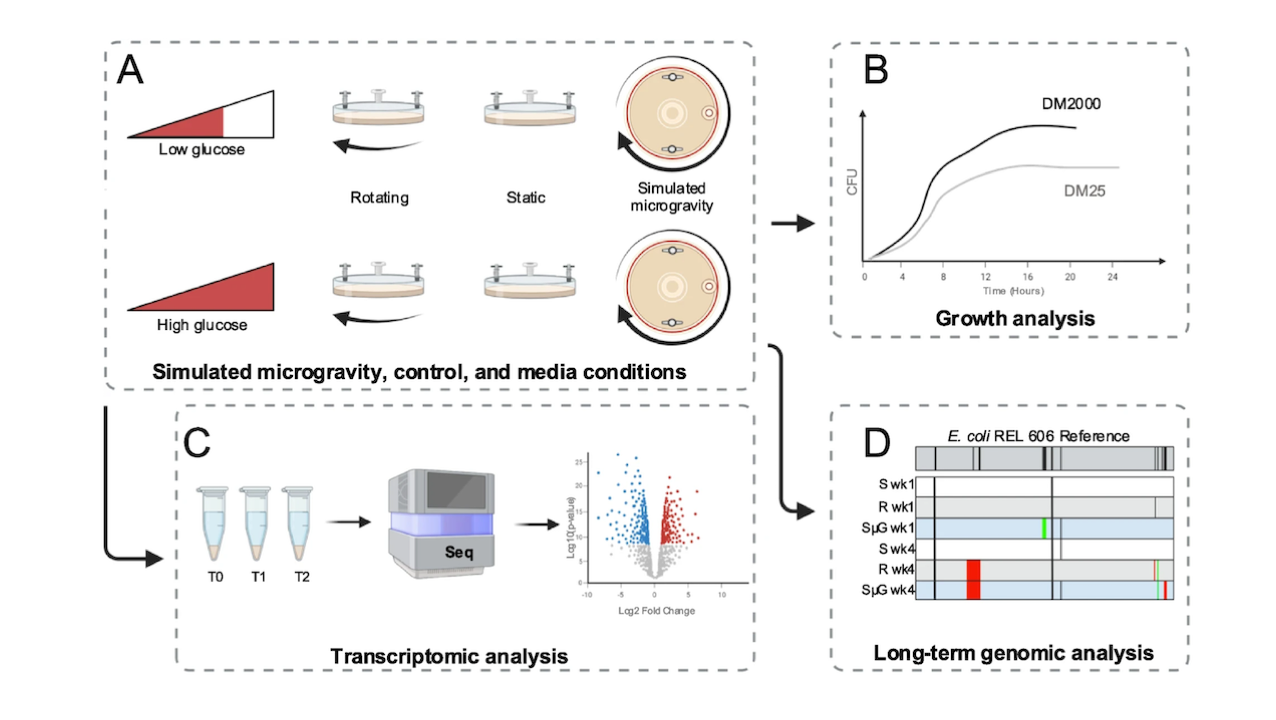Schematic of project design. A E. coli REL606 strains were grown in High Aspect Ratio Vessels (HARV) on Rotating Wall Vessels (RWV) for simulated microgravity (SµG) and rotating (R) control in addition to immobile static (S) control. Each growth condition was assayed in glucose-limited (DM25) and glucose-replete (DM2000) media. B In a short-term culture study, the growth analysis of SµG, R, and S cultures in both media types was conducted. C Also in this short-term study, samples were collected at time of inoculation (T0), at 4.5 h post inoculation in DM25 and 6.5 h post inoculation in DM2000 (T1), and 24 h post inoculation (T2) for each condition for RNAseq and differential gene expression analysis. D In a follow-on long-term culture study, samples were passaged each day for 28 days. Samples from every 7th day of culture were subjected to whole genome sequencing to assay the genomic alterations for each growth condition. Created with BioRender.com — BMC Microbiology
Investigating the evolution of Escherichia coli in microgravity offers valuable insights into microbial adaptation to extreme environments.
Here the effects of simulated microgravity (SµG) on gene expression and genome evolution of E. coli REL606, a strain evolved terrestrially for 35 years, is explored. The transcriptomic changes for glucose-limited and glucose-replete conditions over 24 h illustrate that SµG increased the expression of genes involved in stress response, biofilm, and metabolism.
A greater number of differentially expressed genes related to the general stress response (GSR) and biofilm formation is observed in simulated microgravity cultures under glucose-limited conditions in comparison to glucose-replete conditions.
Longer term SµG culture under glucose-limited conditions led to the accumulation of unique mutations when compared to control cultures, particularly in the mraZ/fruR intergenic region and the elyC gene, suggesting changes in peptidoglycan and enterobacterial common antigen (ECA) production.
These findings highlight the physiological and genomic adaptations of E. coli to microgravity, offering a foundation for future research into the long-term effects of space conditions on bacterial evolution.
Simulated microgravity triggers a membrane adaptation to stress in E. coli REL606, BMC Microbiology (open access)
Astrobiology, space biology,

